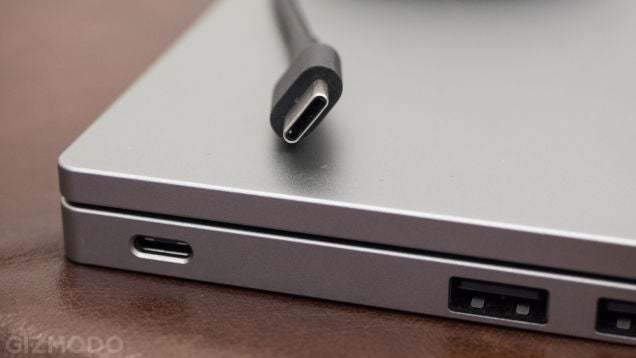- Apr 24, 2013
- 1,200

Thanks to Apple's new MacBook and Google's new Chromebook Pixel, USB-C has arrived. A single flavor of cable for all your charging and connectivity needs? Hell yes. But that convenience doesn't come without a cost; our computers will be more vulnerable than ever to malware attacks, from hackers and surveillance agencies alike.
The trouble with USB-C stems from the fact that the USB standard isn't very secure. Last year, researchers wrote a piece of malware called BadUSB which attaches to your computer using USB devices like phone chargers or thumb drives. Once connected, the malware basically takes over a computer imperceptibly. The scariest part is that the malware is written directly to the USB controller chip's firmware, which means that it's virtually undetectable and so far, unfixable.
Before USB-C, there was a way to keep yourself somewhat safe. As long as you kept tabs on your cables, and never stuck random USB sticks into your computer, you could theoretically keep it clean. But as The Verge points out, the BadUSB vulnerability still hasn't been fixed in USB-C, and now the insecure port is the slot where you connect your power supply. Heck, it's shaping up to be the slot where you connect everything. You have no choice but to use it every day. Think about how often you've borrowed a stranger's power cable to get charged up. Asking for a charge from a stranger is like having unprotected sex with someone you picked up at the club.
What the Verge fails to mention however, is that it's potentially much worse than that. If everyone is using the same power charger, it's not just renegade hackers posing as creative professionals in coffee shops that you need to worry about. With USB-C, the surveillance establishment suddenly has a huge incentive to figure out how to sneak a compromised cable into your power hole.
It might seem alarmist and paranoid to suggest that the NSA would try to sneak a backdoor into charging cables through manufacturers, except that the agency has been busted trying exactly this kind of scheme. Last year, it was revealed that the NSA paid security firm RSA $10 million to leave a backdoor in their encryption unpatched. There's no telling if or when or how the NSA might try to accomplish something similar with USB-C cables, but it stands to reason they would try.
We live in a world where we plug in with abandon, and USB-C's flexibility is designed to make plugging in easier than ever. Imagine never needing to guess whether or not your aunt's house will have a charger for your phone. USB-C could become so common that this isn't even a question. Of course she has one! With that ubiquity and convenience comes a risk that the tech could become exploited—not just by criminals, but also by the government's data siphoning machine.
